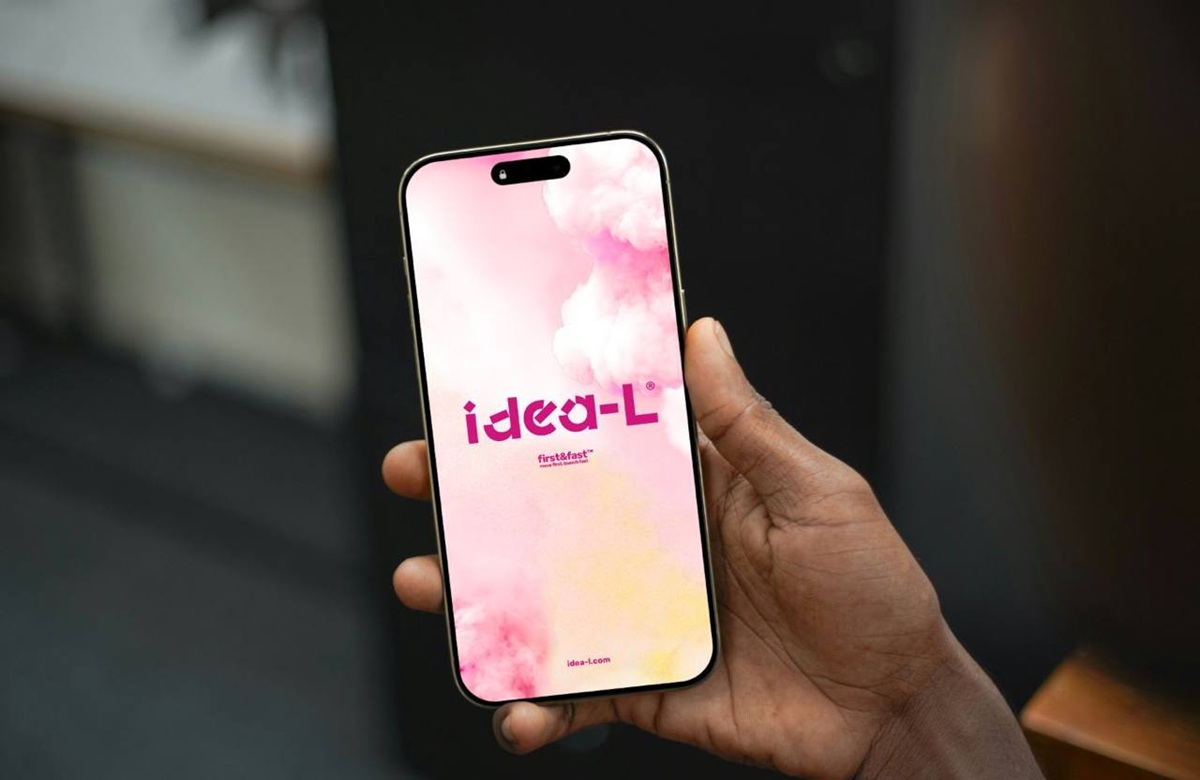Idea-L unveiled its AI-powered platform to obliterate startup failure before it starts. It’s like having an AI cofounder in your pocket.
The new platform will blend cognitive AI, decentralized funding, and behavioral science to help entrepreneurs launch faster and smarter, with structure built in, said Peter Goodwin, CEO of Ideal-L, in an interview with GamesBeat. His firm is based in Dubai.
Startup failure is often accepted as inevitable, but what if the real problem isn’t bad ideas, just bad timing, poor execution, and a lack of support? The thesis behind Idea-L, a new AI-powered startup platform designed to prevent great ideas from dying early. The goal is to get the app into both iOS and Android in the new few weeks.
Idea-L introduces the Idea Realization Platform (IRP), a software-as-a-service (SaaS) platform powered by advanced AI and decentralized finance (DeFi). The goal: to make startup success more predictable, scalable, and achievable by removing the most challenging hurdles entrepreneurs face during early-stage execution.
“Startups don’t fail because people aren’t smart,” said Goodwin. “They fail because they’re missing the kind of cofounder who shows up with the right skills, questions, and pushes at exactly the right time. Idea-L gives founders that partner plus the backing of a friendly, founder-first, agenda-free VC — from day one.”
Built for today’s high-speed innovation economy, Idea-L is designed to validate, fund, and realise startup ideas with unprecedented speed and intelligence, removing the ‘idea-to-execution’ gap that founders all face in the beginning. With IRP, they’re guided by a smart companion that helps them move fast and build with confidence.
“We’re building for anyone with any idea anywhere in the world. We genuinely believe that the next big idea is not going to come from a place where there’s wealth and support and networks and everything. It could come from anywhere. So it’s really important to democratize access to building stuff,” Goodwin said.
Don’t ignore it, prevent it
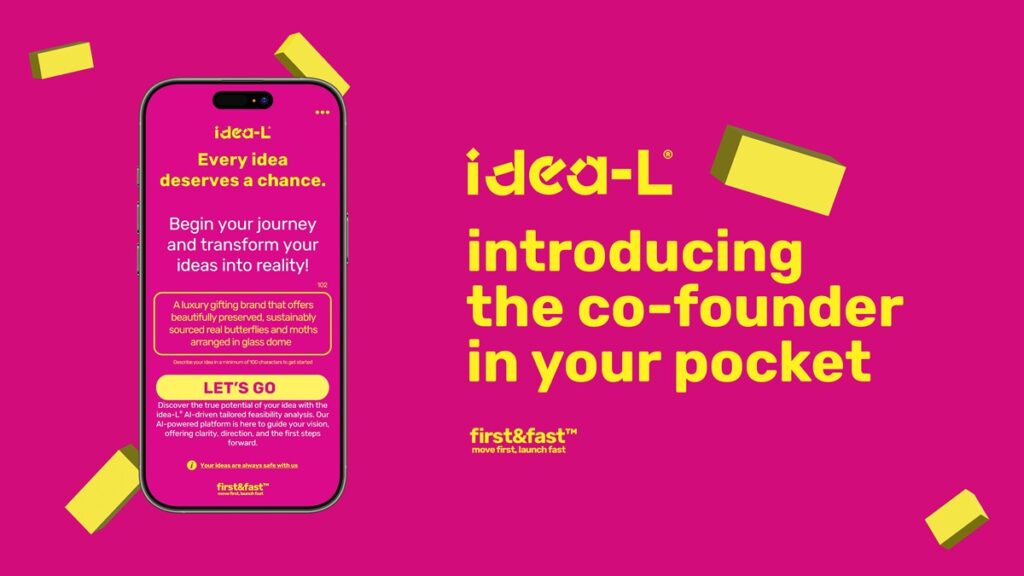
At the heart of the platform is the Prevent framework, Idea-L’s proprietary model that identifies the seven core reasons why startups fail: Psychology, Resources, Expertise, Vision, Execution, Network, and Timing.
The IRP actively addresses each of these barriers using a suite of AI tools that automate feasibility assessments, recommend strategic actions, and encourage founders to make timely and informed decisions.
Where most platforms bolt AI onto legacy features, Idea-L is fundamentally different: it’s AI-native from the ground up. Its intelligence goes far beyond large language models, blending symbolic reasoning, probabilistic logic, and hypergraph learning to evolve and verify knowledge dynamically.
This hybrid cognition engine enables Idea-L to work like a thinking partner — one that understands the founder’s psychology, adapts to their context in real time, and helps them move forward with structure, not guesswork.
At the centre of Idea-L is the Idea Realization Platform (IRP), your co-founder in your pocket. An AI-powered system that removes guesswork and gives every founder a structured path forward. The journey begins with fast-Feasibility, a rapid validation tool that blends structured datasets with generative AI to deliver instant clarity on potential.
From there, LIVE-Feasibility provides deeper, real-time insight into market conditions, competition, and operational risks, with the option to add human calibration via teamLIVE-Feasibility™, an advanced layer designed for founders preparing to scale or fundraise.
Once an idea shows signal, the IRP shifts into full execution mode, charting a personalised roadmap, delivering behavioural nudges, and unlocking seamless access to the Idea Funding Platform (IFP).
The IFP is where traction meets capital. Directly connected to the IRP, it uses AI-driven scoring to match promising ventures with decentralized funding via a tokenized marketplace. Here, founders can receive real-time investment through blockchain smart contracts, removing traditional delays, bias, and institutional red tape.
Backing this is the deVC Fund — the world’s first decentralized venture capital model. Governed by a DAO and powered by AI-led capital allocation, it ensures funding flows dynamically to the highest-potential ideas.
Earlier this year, Idea-L closed an oversubscribed $1 million pre-seed round to accelerate the platform’s rollout, funding development of its AI co-founder system, expanding its realisation engine, and launching GovToken, the governance asset powering quadratic voting and DAO-led roadmap steering.
Whether you’re a solo builder with a big idea or a growth-stage founder seeking streamlined execution, Idea-L offers an intelligent system that eliminates guesswork, accelerates progress, and increases your odds of success.
Founded in 2024, Idea-L is the cofounder in your pocket — a comprehensive platform for future founders, guiding them from concept to launch. It offers 24/7 access to tools and resources to turn ideas into reality and build their ideas with clarity and support.
Origins
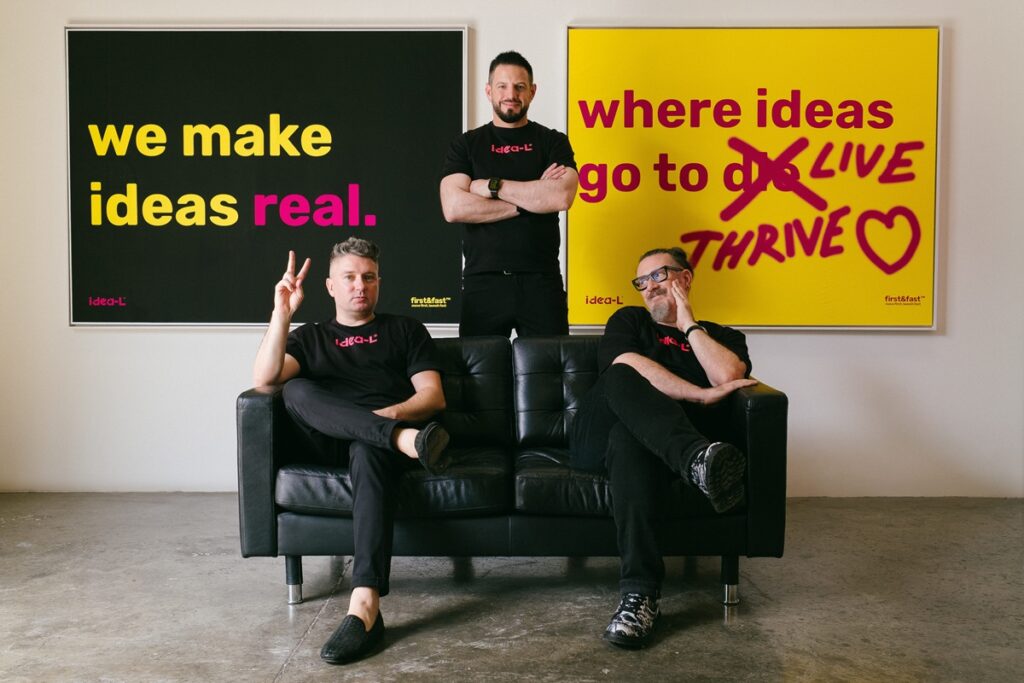
The team has three cofounders, including Goodwin, Daniel Muller (COO), and Mark Hill (chief legal officer). The company is based in Dubai, but it is considering adding more development in Asia. It has a long-term development team based in Taiwan, with a couple of people in Singapore.
“This is about a problem that I faced. So in the last 23 years that I’ve been working, I’ve either run other people’s businesses, or I’ve started my own and run my own,” Goodwin said. “I’ve been a founder pretty much my entire working life. And off the back of that has come frustration about the process of starting something, getting it from zero to 100.”
Goodwin hit a point, maybe 18 months ago, where he had ideas for businesses that he could not get off the ground.
“With the advent of AI and where things were going, I thought there must be a tool that I can just plug into that helps me launch, helps me build something, essentially a cofounder. I wanted an AI cofounder, and I could not find one,” Goodwin said.
And so he had to assess where things were.
“I had 15 ideas that I had not got done,” Goodwin said. “They were all at various stages, like horses in a race. Some had a brand, some had a website, blah, blah, blah, but none of them had been launched,” he said. “I couldn’t get these things done.”
To launch all of them, he needed a tool. He couldn’t find one and so he decided to build the tool. One of the things the tool will do is deliver metrics on the startups that succeed and those that fail. That will ultimately become useful as a source of truth itself.
“We can look at types of ideas. We can look at what’s coming in the top of the funnel. I’m most excited about is the kind of data we’re going to pull through that we can train our proprietary AI on,” he said.
The company is involved in the Nvidia Inception program, which helps AI startups.
The problem with startups
It wasn’t through lack of trying, and not through lack of research. And so Goodwin decided to build one based on identifying this problem.
He noted that VC investment in 2024 was around $300 billion. Startups are a huge segment of the global economy. The problem is that 90% of them fail. About 21% fail in the first year — the largest segment fail on product-market fit, from a lack of research. And 29% failed due to lack of funds or mismanagement.
“But we think there’s another problem. We think that starting up is needlessly hard. Founders burn out during launch, and exhaustion kills execution. We genuinely believe that to start a business in the last 10, 20, or 30 years, you run six marathons before you start the marathon,” he said.
And that makes no sense whatsoever. It spawns phrases like “staring into the abyss” for entrepreneurs.
“You know what it takes to become an entrepreneur, and you know it’s just relentless grit and determination. Very few people survive, and that’s because it’s so hard to do, and we don’t think it should be that hard,” Goodwin said. “The world of VCs is inaccessible. That’s not just our opinion. That’s shared by a lot of people. So getting funding is hard.”
Most ideas don’t get past the concept stage. A huge chunk of those fail. But what about the unrealized ideas that never get close to launch?
“And this is our market. This is the space that we want to dive into,” Goodwin said.
Overcoming barriers
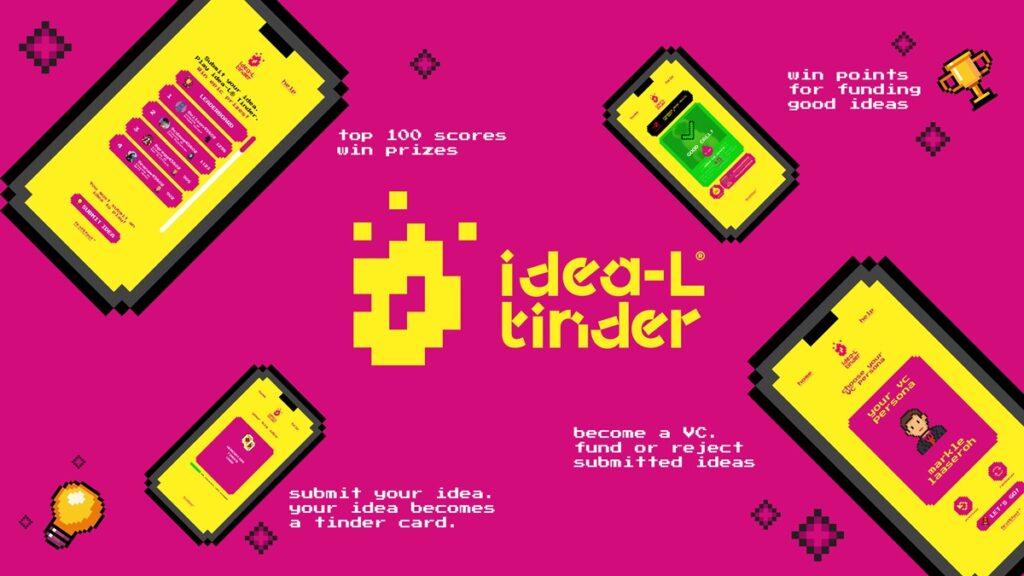
There are seven launch barriers and the app has to walk people through them, he said.
“This builds up a matrix that is the base of our ideas. So psychology, resource, expertise, vision, execution, network and timing. Those are the seven reasons why startups fail or don’t even get off the ground, and some are more important than others,” he said. “But frankly, if you don’t have these seven, you aren’t going to launch period.”
So how do you “unfail” people? How do you increase success and help with funding? How do you realize the potential of unrealized ideas? Goodwin’s cofounders have their own expertise in fundraising and legal matters.
The tools should not be conclusive, with only one answer. It should tell you what to consider if you’re thinking of moving forward with an idea.
Building the product

The team combines AI and Web3, and the first product is going to be an AI engine to validate ideas, offering fast validation for ideas that could 100 characters or more in length. It will offer assessments in terms of red, yellow or green lights, like a traffic signal. It will offer objective validation of ideas, and it shouldn’t be overly pessimistic or optimistic, Goodwin said.
“We’re building algorithms that can assess things based on the art of the idea as well as the science. So it’s not just about feasibility. It’s about how much of an outlier it is. How disruptive is it? And that’s a very quick product that’s going to market soon,” Goodwin said.
After that, the team will build a tool dubbed Live Feasibility, which is a more comprehensive test based on a conversation with an AI agent. It will try to grasp the idea and assess the depth of the market in something like 45 minutes worth of Q&A.
“That produces a much more comprehensive result,” he said.
Then the idea moves from fast feasibility into an engine, which is what the firm is calling the “cofounder in your pocket.” This is like a companion where it will tell you want to do every single day.
“It will motivate you, and it will also hold you accountable on what you haven’t done, and it will track you all the way through,” he said. “The great thing about that is that we will look at funding a percent of the ideas and the percentage of engaged members, so we won’t start deploying capital to them unless they show progress on the app. So we’re actually minimizing the risk of our hunt as well.”
Goodwin’s own background is brand and marketing.
“I have a saying for my development team, which is, ‘Marketing is 10 times harder than coding, and that’s because you can build great stuff, but if you don’t get people to use it, it’s not going to work,'” Goodwin said.
Goodwin’s own company has raised a preseed round, and it expects to launch a token soon to power its Decentralized Autonomous Organization, or DAO. That will govern the fund that will be raised at year end or next year. One the startup is live, most of the work is done. That could take four to six months.
The trick is not to shoot people down but to ground them in reality.
“We’re trying to be as real with people as we can, but not kill the spark or kill the energy and passion for something,” he said.
The cofounder in your pocket
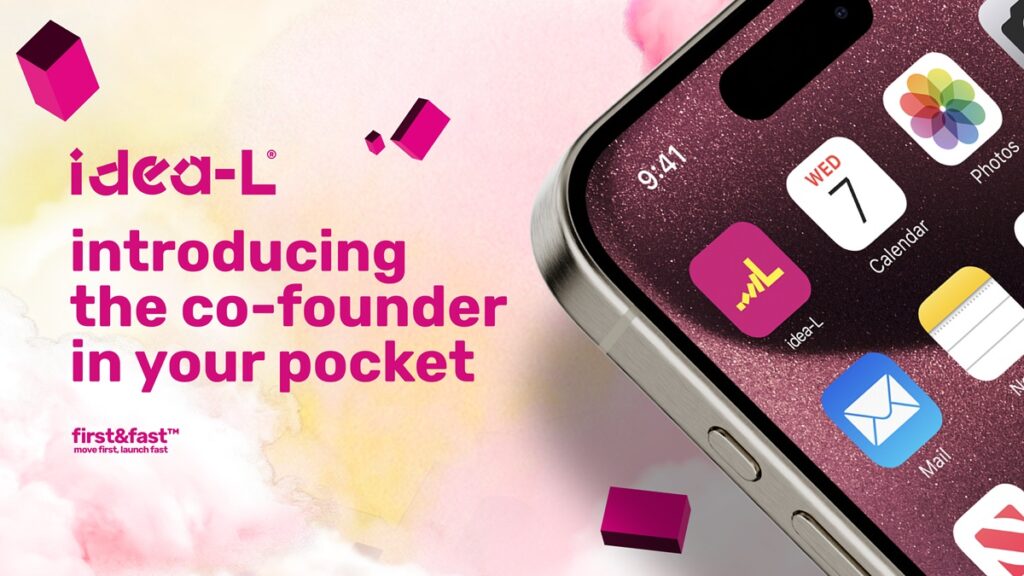
Over time, the team will consider creating more than one AI cofounder to help. You may be able to pay extra for a marketing agent, brand agent or legal agent. The company will have partnerships with CRMs and other experts needed for help. In most jurisdictions of the world, you need human intervention at some point.
Testing for fast feasibility of an idea is free and it always will be. It will cost more for a live feasibility report at launch. For the actual cofounder in your pocket, the feel may turn out to be $40 to $50 a month, with more comprehensive advice with a full support suite.
The future of entrepreneurs
Goodwin thinks that GenZ folks are natural entrepreneurs, doing work in a do-it-yourself manner.
“They’re talking if they’re going to run their own things, move around and travel the world,” Goodwin said. They’re so flexible in their mindset, and so tech native that they’re building like crazy.”
Goodwin wants to give them the right tools. As for older people, they need to think about AI taking their jobs. If you’re an admin in a law firm, your days are numbered, Goodwin said. And Goodwin wants people to ask themselves if being put out of work is a good or a band thing. He noted the old saying about the invention of the car. It meant that a horse was out of work, and now horse’s job was to go back to being a horse. Goodwin liked my own suggestion that people don’t have to work. They should just play. But I digress.
Goodwin’s hope is to create a kind of social network to find human cofounders with the AI in the background. AI connects you, and then AI supports both of you together.
“That might be one of the key things we end up doing because I’m keen to not remove humans from the equation,” he said. “I think it’s really important that people have mentors and support and help that are human and not just relying on an AI cofounder.”



